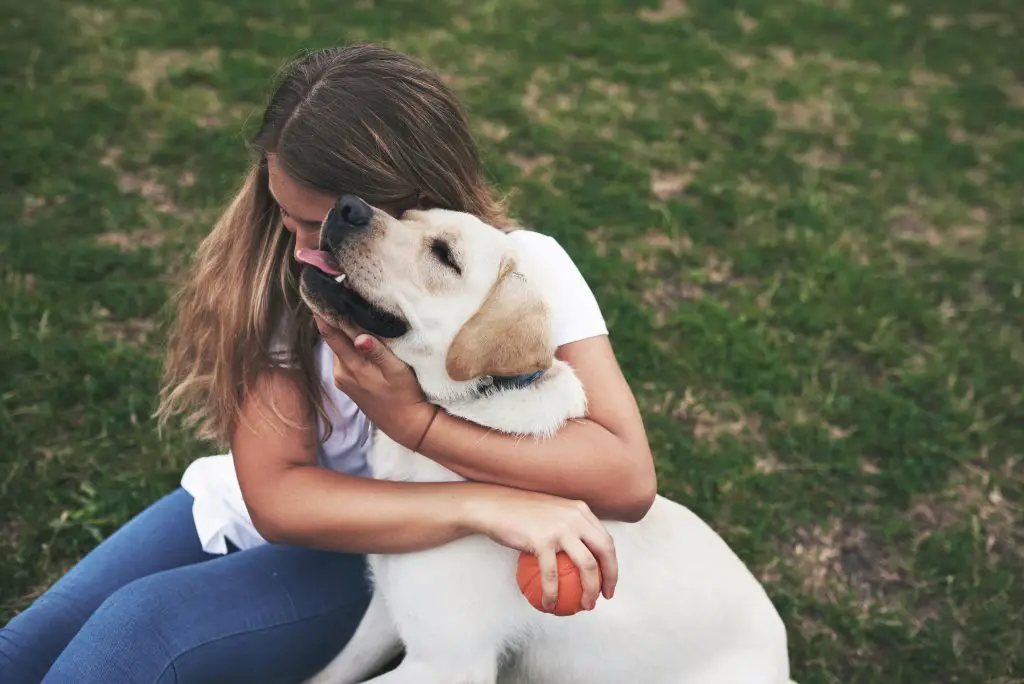Every dog lover wants to ensure that any new pet they bring home – whether it is a puppy or an adult – is a healthy one. This is particularly true for the Labrador Retriever, which is one of the most active and energetic breeds in the canine world.
The problem with the Lab is that they may possess certain inherited conditions which need to be diagnosed as early as puppyhood through genetic testing. Of course, the breed itself is at risk of certain health conditions, including bloat, joint problems, and many others. For these reasons, it is important that you start on your dog raising journey with a healthy Lab to begin with.
Let us take a look at the steps on choosing a healthy Labrador Retriever to bring home. This article will cover choosing a healthy Lab puppy as well as an adult dog (if you are planning to adopt one from your local shelter).
Choosing a Healthy Lab Puppy
While not an absolute guarantee, your best source for healthy Lap puppies is a reputable breeder. Good breeders ensure the overall health and well-being of the parents through regular health screening and certification by a registered and licensed veterinarian. After all, a healthy sire and dam means good health for their litters as well. Good breeders also are extremely careful about the possibility of inbreeding, which may lead to a host of genetic disorders, so that they check the lines of every male and female dog they breed to ensure that they are not related by blood.
When choosing a Lab puppy from a breeder, always ask to see the parents. The mother/dam, in particular, should be healthy and well-nourished. Even if a puppy looks healthy, you should be wary if the mother looks thin, sick, or under nourished.
Physically, a healthy Lab puppy should be well-proportioned and should be at the right size according to their age. Very small puppies can be a sign of malnutrition. Some clumsiness may be observed because of their age. However, they should not be favoring a leg or actually limping. Neither should their walk or gait be jerky, stiff, or uneven. A healthy Lab puppy should have a flat tummy. A distended or “pot” belly may be indicative of a worm problem.
When it comes to personality and temperament, healthy Lab puppies already exhibit the exuberant energy they are noted for. They are naturally friendly and curious about their environment, people, and new things that they see. You should be wary if the puppy seems shy, cautious or afraid or aggressive as these may be indications of illness or even possible abuse.
Make sure that you ask the breeder to present to you the health certificates that the puppy possess. It should have a clean bill of health and cleared from inherited diseases, such as Canine Hip Dysplasia (CHD) and Progressive Retinal Atrophy (PRA). You should also ask about any other diseases that the puppy’s parents have had in the past since they might acquire these same medical conditions when they grow older.
Choosing a Healthy Adult Labrador Retriever
Unlike with puppies wherein you can get health certificates from a breeder, adult Labs can only be adopted from rescue shelters. While adult dogs are regularly checked out by a veterinarian and given vaccinations at the shelter, unless they have had a previous owner, they may not have been certified clear of inherited diseases in the breed.
When choosing an adult Lab at your rescue shelter, you should check if the dog is of normal size and weight. Healthy Labs should have an average weight range of 60-80 lbs. They should not have any skin lesions, bad odors in their breath, or any form of discharge coming from their eyes, ears, nose, or genital regions.
You should be aware of signs of inherited diseases in the adult Lab, in particular PRA (which can lead to blindness) and CHD (which causes pain and lameness in the dog). If the adult dog has not been tested for these conditions, you may want to consider having genetic testing done. It should be mentioned, however, that most genetic diseases in Labs manifest at certain ages. For example, bouts of epilepsy frequently appear in Labs between the ages of two and four years old. As they grow older, the risk of these health problems decreases.
In personality and temperament, the adult Lab should be naturally friendly and alert. Any behaviors that detract from the norm, such as shyness from or fear of people and their environment and aggression, could be signs of illness or behavioral problems resulting from maltreatment.
It should be mentioned that although some rescued Labs may seem healthy upon adoption, it does not mean that they don’t have any existing conditions that neither you nor the shelter may be aware of. For example, it is safe to assume right off the bat that the Lab may not have been getting the right nutrition, so you can correct this at home by feeding them the correct dog foods as prescribed by your vet.
Always have your adopted adult Lab checked out by a vet first for any possible medical conditions. Even if there are illnesses, please don’t return the poor dog to the shelter and instead commit to its care. Ensure that they have regular vaccinations and get your vet’s advice in times of sickness. If your dog exhibits some behavioral problems, it is never too late to start training them. Adult Labs are intelligent dogs and, with time and patience, can be trained so that they lose any bad behaviors that they may have acquired in the past.
While it is the desire of a Lab owner to bring home a healthy Labrador Retriever, the dog’s overall health and well-being can only be determined and guaranteed by the quality care that you can give your beloved pet.


